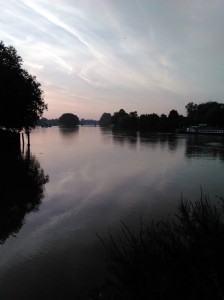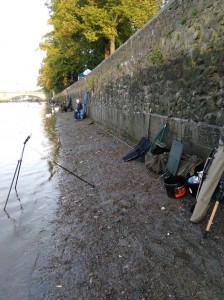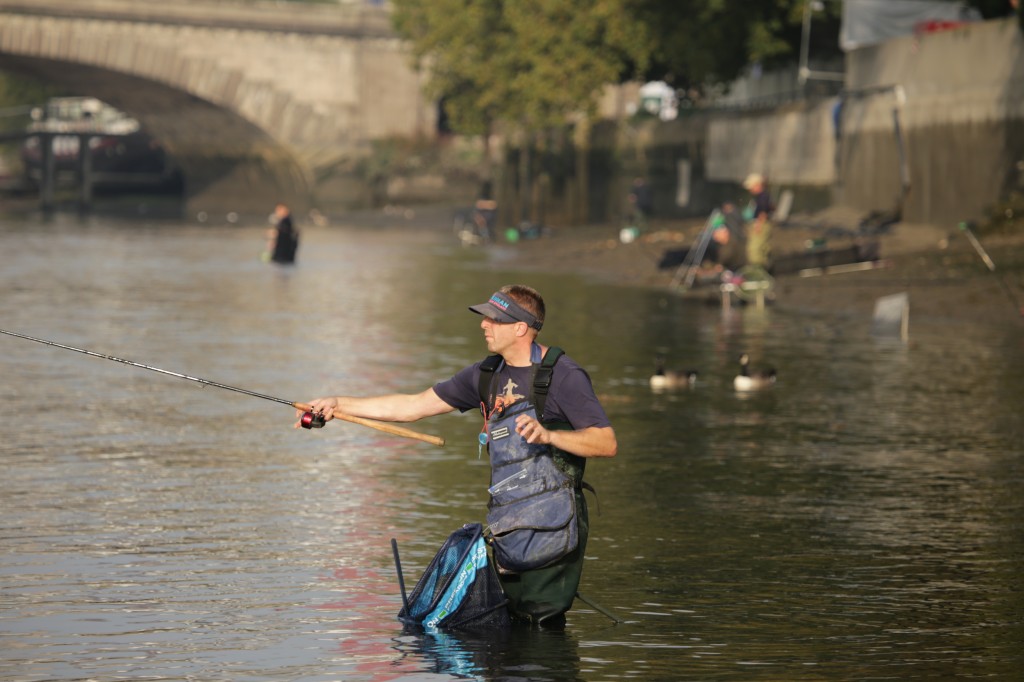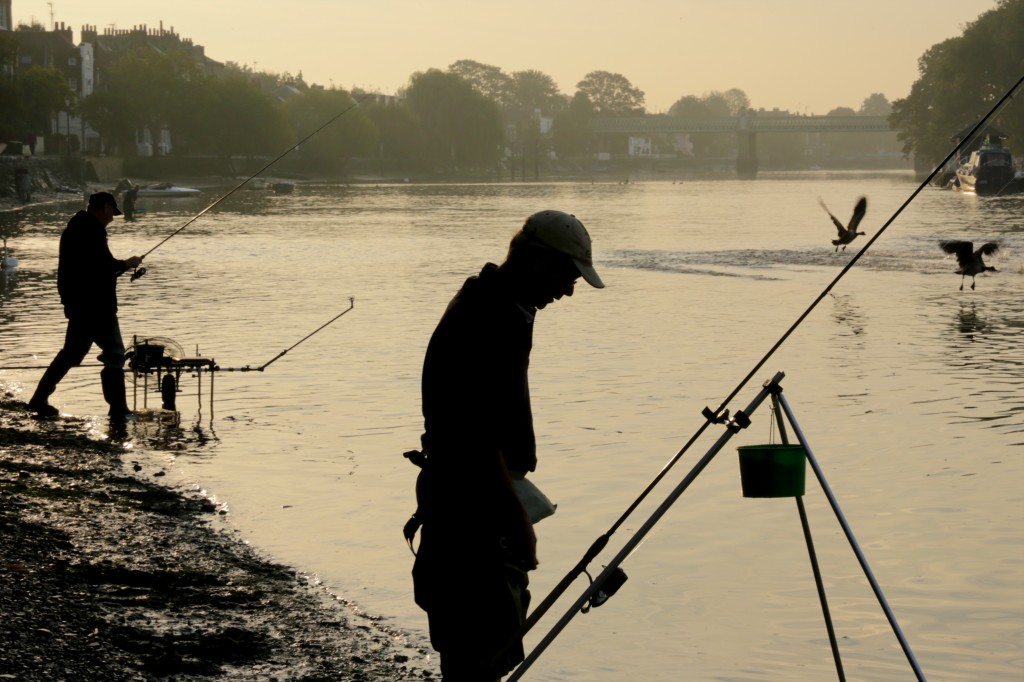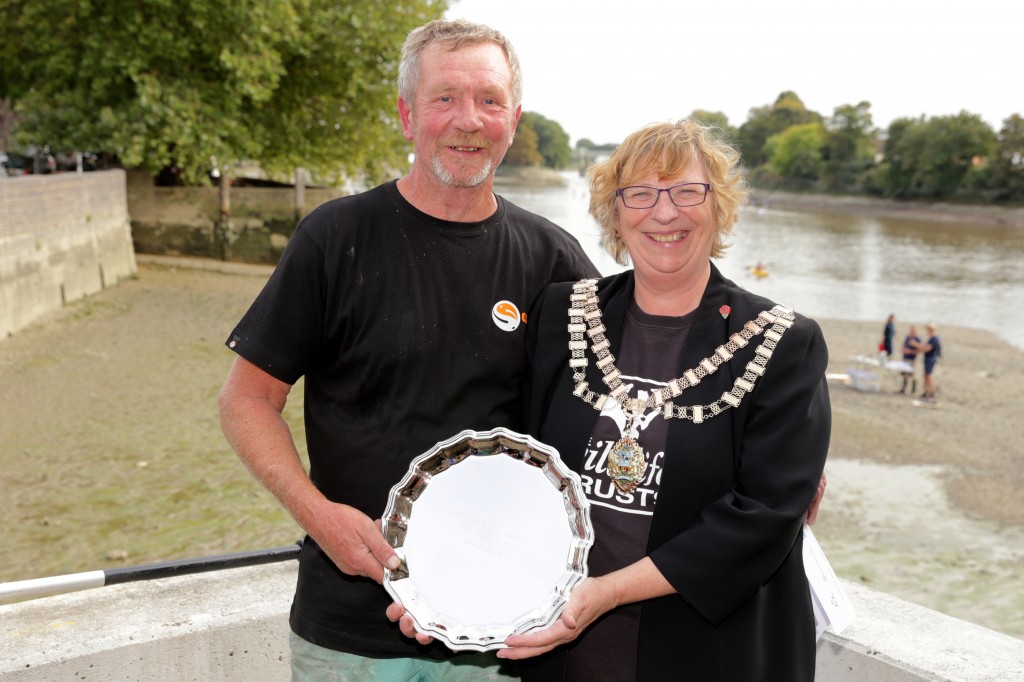-
- Buy a UK rod licence: EA Link
- 0800 807060 EA Hotline, Pollution, Poaching
- Thames Region River Levels
- Thames River Conditions
- Thames Temps and Clarity
- Thames Fishing Byelaws
- Thames Annual Tidefest
- Thames Record List
- Thames Eel Monitoring
- EA Annual Fisheries Report
- EA Flood Warnings
- Thames Sewage Discharge Notifications
- Thames Sewage Events
- Thames Tideway Tunnel
- River Thames Scheme: Reducing flood risk from Datchet to Teddington
- Martin Salter: Fighting for Fishing Blog
- Duncan Charmans World of Angling Blog
- Angling Trust
- Water and sewerage companies in England: environmental performance report 2013 – 2016
- EA Pollution incidents: 2014 evidence summary
- EA Pollution incidents: 2015 evidence summary
- River Crane and DNR Fisheries Impact assessment
- Links
Recent Tweets
Error retrieving tweetsNews Archive
Thames Water rejects claim that Tideway Tunnel is unnecessary
Posted in News
Tagged Environment Agency, Fish KIll, Pollution, Sewage, Super Sewer, Thames Water, Tideway Tunnel
Comments Off on Thames Water rejects claim that Tideway Tunnel is unnecessary
Tidal Thames Draw Off 2014
Each year in mid November the Semi-Tidal Thames between Teddington and Richmond is allowed to ‘draw off’, or become a full tidal river.
This allows access to locks, weirs, and sluices along the river for essential maintenance and inspection of the river bed, including invertebrate surveys.
Below are some pictures taken during the low tide this year
Bass get Full Support in Parliament
Posted in News
Comments Off on Bass get Full Support in Parliament
Call for EU to act on Growing Threat to Wildlife and Drinking Water from pharmaceuticals
There is increasing evidence that human and veterinary medicines are damaging wildlife, a new report launched today by the environmental charity CHEM Trust shows.
The report “Pharmaceuticals in the Environment: A growing threat to our tap water and wildlife” highlights that medicines [1] are polluting rivers and have harmed wild birds and fish. Other species too have been affected, and people are also worryingly exposed.
This report comes at a time of growing global concern about the environmental effects of pharmaceuticals. Later this month a United Nations Environment Programme (UNEP) meeting [2] will decide whether ‘Pharmaceuticals in the Environment’ should be recommended to be designated an emerging global policy issue.
The author of the report, Gwynne Lyons, Director of Policy at CHEM Trust, said: Most people would probably be surprised that in general they excrete between 30-90% of any medicine they take. With so many medicines now being found in our rivers, action on all fronts is needed to protect wildlife and drinking water.
She added: The long term implications of many highly active medicines in our environment may come back to haunt us. The current situation is mind-boggling with fish contaminated with the birth control pill, antidepressants (such as Prozac), sedatives, antibiotics, painkillers, anti-cancer drugs and goodness knows what else.
The report, an extensive analysis of the scientific literature and government reports, finds that there is a lack of adequate controls:
◾613 pharmaceuticals have been reported in the environment worldwide, but analytical detection methods are not even available for many of the thousands of medicines in use.
◾Rivers in the UK (and in all regions of the world) are now contaminated with many medicines.
◾In England, anti-inflammatories and pain killers (ibuprofen and diclofenac) have been found in fur taken from otters.
◾In Sweden, samples of perch fish were found to be contaminated with 23 pharmaceuticals, including antidepressants (such as Prozac), sedatives, antibiotics, painkillers and anti-cancer drugs.
◾Baltic Sea salmon has been found contaminated with ethinyl estradiol, used in the contraceptive pill.
◾Several medicines have been shown to harm laboratory animals at the levels found in the environment, but there is little monitoring for effects in wildlife.
◾Assessments of the environmental risks from human medicines in use before 30th October 2005 were not required and are often absent.
◾Dozens of medicines have been found in samples of drinking water in EU countries with larger monitoring programmes (eg. in France, Sweden, Spain and Germany)Yet legal standards for residues of medicines in rivers and drinking waters are lacking.
The report by CHEM Trust concludes that individuals, companies and governments can all help to reduce this problem by ensuring that:
◾Unused medicines are disposed of at pharmacies and NOT by flushing them down the toilet
◾New medicines are designed so that they don’t persist in the environment, and
◾Sewage treatment works are improved
In addition, the European Union should strengthen laws relating to the pollution of rivers with pharmaceuticals, and there also needs to be better international coordination on this issue.
Full report can he found HERE
Famous English Chalk Stream to get new life
After years of lobbying against excessive water abstraction from the Upper Kennet, angling and conservation groups – backed by local MP Richard Benyon – have given a warm welcome to the announcement from Thames Water for a new £25 million drinking water pipeline that will significantly reduce the amount of water taken every day from the famous Wiltshire and Berkshire chalk stream.
Posted in News
Tagged Angling Trust, Environment Agency
Comments Off on Famous English Chalk Stream to get new life
Southern Water ordered to pay £500,000 for releasing Untreated Sewage
 Southern Water were today (13th Nov) fined £500,000 and agreed to pay costs of £19,224 at Canterbury Crown Court after an Environment Agency (EA) investigation found that untreated sewage was discharged into the Swalecliffe Brook, polluting a 1.2 kilometre stretch of the watercourse and killing local wildlife.
Southern Water were today (13th Nov) fined £500,000 and agreed to pay costs of £19,224 at Canterbury Crown Court after an Environment Agency (EA) investigation found that untreated sewage was discharged into the Swalecliffe Brook, polluting a 1.2 kilometre stretch of the watercourse and killing local wildlife.
Swalecliffe Brook flows through the Thanet Coast Site of Special Scientific Interest (SSSI) before joining the north Kent coast to the east of Whitstable, a section of the coast which forms part of the Saxon Shore Way.
The court heard that Southern Water did not respond quickly enough to the pollution, which occurred on 21 July 2013 when untreated sewage discharged via the Brook Road Wastewater Pumping Station’s emergency outlet.
The pumping station had encountered operational issues in the week leading up to the pollution event.
As a consequence of the spillage, restrictions were placed on bathing at local beaches. Local shellfish growers were advised that if tests showed high levels of contamination they would be unable to sell the shellfish harvested locally ahead of the Whitstable Oyster festival 2013.
Responding to a report from a member of the public, Environment Agency officers found the water was heavily discoloured with dead sticklebacks and eels at regular intervals along the polluted stretch of the watercourse.
Water quality monitoring carried out on site recorded high levels of pollution and very low dissolved oxygen. This indicated that the brook had indeed been contaminated with untreated sewage.
A survey identified 249 fish had been killed as a result of the polluting discharge, including 155 eels which are a critically endangered species.
The court heard that the polluting discharge had a wider detrimental impact on amenity value of the area, as well as hearing summaries of statements provided by local businesses. The incident occurred just days before the popular Whitstable Oyster Festival, with the brook discharging into coastal waters that contain numerous commercial shellfish beds, an integral part of the town’s economy and heritage.
Whitstable oysters brand
Whitstable oysters are a world renowned brand, and the Environment Agency’s investigation highlighted that local businesses remain concerned about the impact the discharge has had on the brand reputation.
In response to defence given by Southern Water Her Honour Judge Adele Williams said that failure to act upon alarms cannot be laid at the door of one employee, calling it a failure of management.
Alan Cansdale, Environment Manager at the Environment Agency, said:
“Southern Water has acknowledged that they had sufficient warning and knowledge of the incident to minimise the impact on the local environment, but failed to act swiftly and notify partners to help this happen. This incident, and the scale of the subsequent environmental impact, was a result of inadequate urgency to recognise there was a problem at the site.
“My officers are carrying out ongoing reviews of the Southern Water infrastructure involved in this incident, and we are pleased that Southern Water Services have acknowledged improvement is needed and have committed over £500,000 to increase the standards of wastewater treatment at the site.
“Canterbury City Council’s assistance was vital in the response to the incident and their subsequent expert guidance and technical input in bringing this important issue to court. We will continue to work with them to improve bathing and shellfish water quality remains one of our joint top priorities.”
Canterbury City Council’s Environmental Health Officer, Sarah Maloney, said:
“We were pleased to be able to work in partnership with the Environment Agency in this case. The good reputation of our shellfish industry is very important to local businesses and the council. We work hard all year to ensure our residents and visitors are able to enjoy local shellfish safely, so it’s vital we can respond to pollution events such as this promptly and effectively.”
Posted in News
Tagged Environment Agency, Fish KIll, Pollution, Sewage
Comments Off on Southern Water ordered to pay £500,000 for releasing Untreated Sewage
Highly Invasive Quagga mussel discovered for first time in UK
The invasive species, the quagga mussel (Dreissena rostriformis bugensis), has been discovered in the south east.
The quagga mussel is generally the size of a thumbnail but can grow to 4cm – Picture courtesy of Dr David Aldridge.
The discovery was made by Environment Agency teams carrying out routine water quality testing on River Wraysbury. It has subsequently been found in the nearby Wraysbury reservoir too.
The identification was confirmed by Dr David Aldridge of Cambridge University on 1 October 2014.
Since the mussel was identified the Environment Agency has been working with partners including Thames Water, Angling Trust and local angling clubs, to put biosecurity measures in place. Work is now taking place to monitor the River Thames and reservoirs in the local area to investigate the extent of the problem and the distance that the quagga mussel has spread.
Anglers and boaters can play an important part and everyone is urged to help stop the spread of this species by following the ‘check, clean, dry’ approach and thoroughly cleaning any equipment.
The quagga mussel is a prolific breeder – a fully mature female mussel is capable of producing up to one million eggs per year. Due to its ability to filter out large quantities of nutrients and to breed quickly, the quagga mussel can significantly reduce native populations and affect freshwater ecosystems. It can outcompete native mussels. This alters the ecology of the habitats it invades. It can also block water pipes and smother boats’ hulls.
Sarah Chare, deputy director of fisheries and biodiversity at the Environment Agency, said:
“Invasive species – such as the quagga mussel – cost the UK economy in excess of £1.8 billion every year. And while Britain’s rivers are the healthiest for over 20 years, rivers that harbour non-native species could fall short of tough EU targets.
“The quagga mussel is a highly invasive non-native species, affecting water quality and clogging up pipes. We are monitoring the extent of its spread and working closely with partners to ensure they are aware of it.
“If you spot one then please report it to us through the online recording form. Like the zebra mussel and killer shrimp this species comes from the Ponto-Caspian region – an area around the Black and Caspian seas in south-east Europe.”
Simon Earl, head of water production at Thames Water, said:
“Another invasive species is the last thing we need clogging up our network. But we have a lot of experience in dealing with zebra mussels, which are similar to quagga mussels, and there is no threat to the quality of the water we supply to our customers. We’ll continue to work closely with the Environment Agency to monitor the mussels discovered at Wraysbury reservoir.”
Mark Owen, head of freshwater at the Angling Trust, said:
“It’s vitally important that all water users, including anglers, take every possible precaution to stop this species spreading throughout the UK. Quagga mussels could do untold damage to freshwater and estuarine environments if they are allowed to spread which could have a significant impact on marine and freshwater fish stocks.”
The mussels tend to be about the size of a human thumbnail but can grow to about 4cm. The larvae of quagga mussel are not visible to the naked eye, which makes drying a critical step in applying good biosecurity. There’s good evidence that rinsing or soaking equipment in hot water increases the chance of killing larvae and adults, and is a suggested addition to the Check, Clean, Dry approach. Check, Clean, Dry is important not only to help slow the spread of this species, but also other invasive species that might be present in our waterways. It is especially important to prevent the spread of invasive non-native species to isolated, vulnerable or protected sites.
More information and advice on the quagga mussel and advice on how to slow its spread can be found on the Non-native Species Secretariat web pages: http://www.nonnativespecies.org/alerts/quaggamussel .
Posted in News
Tagged Angling Trust, Environment Agency, Fishing, Invasive, Thames, Thames Water
Comments Off on Highly Invasive Quagga mussel discovered for first time in UK
Angling groups welcome positive news for the Tidal Thames
The Thames Anglers Conservancy , Angling Trust, The Salmon and Trout Association joined environmental groups and charities representing over 5 million people who have been campaigning for a cleaner Thames in London in welcoming the decision of the government to go ahead with the long awaited and much needed Thames Tideway Tunnel.
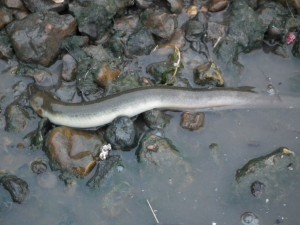
The Thames Tunnel Now (TTN) coalition comprising national and local organisations – including RSPB, WWF, London Wildlife Trust, Thames21, Angling Trust, River Thames Society and angling and boating groups – has been calling since 2011 for the construction of a new tunnel under the Thames to stop tens of millions of tonnes of sewage overflowing into London’s river each year through the city’s 36 Combined Sewer Overflows (CSOs). The result of more than ten years of exhaustive research and development by Thames Water and the Environment Agency, the tunnel proposal has been declared by independent studies as the only viable solution to dealing with “London’s dirty secret whereby as little as 2mm of rain can cause the sewers to overflow directly into the river with devastating effects for fish and other wildlife.
Following ministerial sign off the Planning Inspectorate this morning approved the application for Development Consent for the Thames Tideway Tunnel. The project will now move to the construction phase.
FULL DETAILS OF THE GOVERNMENT’S ANNOUNCEMENT CAN BE VIEWED HERE: http://infrastructure.planningportal.gov.uk/projects/london/thames-tideway-tunnel/?ipcsection=overview
Debbie Leach, Chair of Thames Tunnel Now and CEO of the waterways charity Thames 21 said: “We welcome the Government’s decision to give the go-ahead for the Thames Tideway Tunnel. It will prove invaluable for the health of the river. Like me, thousands of Londoners use the river for rowing, angling, sailing and canoeing. Walkers and cyclists use the towpaths, and people often venture unknowingly on to the foreshore where sewage is currently deposited. The Thames Tideway Tunnel is the most important piece of the jigsaw that will once and for all clean up London’s river and encourage even more Londoners to connect with the Thames. We praise politicians of all parties for keeping their nerve and supporting a key environmental project which will see the end of ‘London’s Dirty Secret'”
David Harvey, Chair of the Thames Anglers Conservancy said: “This announcement from the government in response to the Planning Inspectorate’s Inquiry is very welcome and we look forward to the awful and all too regular Thames pollutions ending once and for all. The devastating fish kill in June 2011, where in excess of 100,000 fish died in a single day, proved something of a wake up call for everyone, and unless a real and long term solution was agreed then these disasters will continue to happen. The Thames is at the heart of London, the artery of our capital city and the route than many species of fish will take in migrating to its upper reaches and tributaries. We are hopeful that the endangered European eel will now start to thrive in the upper Tidal Thames and that it will be a cleaner home to countless others species. We can now look forward to a brighter and cleaner future for our great river. ”
Mark Lloyd, CEO of the Angling Trust said: “Sewage overflows in the summer at times of low water are particularly damaging to wildlife in the river and to a wide range of freshwater and marine fish. The Thames has been described as a wildlife superhighway through the capital and is an important nursery area for millions of bass and flounder and other fish species. Every time there is a major overflow of sewage, tens of thousands of these fish die, damaging the fragile eco-system. Millions of pounds have been spent on fish passes to encourage salmon to return to the Thames but until sewage pollution in the Tideway is tackled most migratory fish runs are bound to fail.”
Dr Janina Gray, from the Salmon & Trout Association said: ‘We welcome the decision to stop raw sewage emptying into the river after heavy rainfall events. For many years this has created biological dead zones and a water quality barrier to fish migration. In removing this, we hope to see salmon, sea trout and other fish species returning in numbers to the Thames.’.
Angling Trust Campaigns Chief Martin Salter added: “There have been too many false dawns for the Tidal Thames and far too many devastating fish kills from sewage discharges and plunging levels of dissolved oxygen in the water. But now we really do feel that London’s river is experiencing a new beginning with improved water quality and the prospect of seeing an end to the storm water discharges that have done so much damage to fish and other wildlife. Our new annual TideFest fishing competition will provide a living guide to the health of the river in the future ” The Tideway Tunnel is one of the biggest engineering projects in Europe and will cost £4 billion. It is estimated that each Thames Water customer will pay less than 20p per day for the tunnel and a much cleaner river and with Thames Water bills currently among the lowest in the country, the new higher rates will still be around the average for water companies in the UK. Construction of the tunnel will create over 9,000 new direct and indirect jobs. A clean and healthy tidal river will also support many thousands more employment opportunities in recreation, leisure and tourism industries in the future.
At the launch of Thames Tunnel Now in October 2011 a spokesperson for the coalition said: “It is completely unacceptable for people to be faced with raw sewage in one of the most sophisticated cities in the world, and for tens of thousands of fish to die from suffocation every time it rains heavily in the summer. Opponents of the scheme should ask themselves if they would like their child to go sailing or fishing among human faeces, sanitary towels and condoms, or if they would like a healthy river full of wildlife for millions of people to enjoy for generations to come.” We now have pleasure in adding: “This is great news for the environment and an historic moment for one of the most famous rivers in the world which will be given a long overdue new lease of life”.
Posted in News
Tagged Angling Trust, Environment Agency, Fish KIll, Pollution, Sewage, Super Sewer, Thames Water, Tideway Tunnel
Comments Off on Angling groups welcome positive news for the Tidal Thames


![DSCN0043[1]](https://www.rivertac.org/wp-content/uploads/2014/12/DSCN00431.jpg)
![IMAG1288_zps6fe55220[1]](https://www.rivertac.org/wp-content/uploads/2014/12/IMAG1288_zps6fe552201.jpg)
![DSCN0030[1]](https://www.rivertac.org/wp-content/uploads/2014/12/DSCN00301.jpg)
![IMAG1306_zpsa2c2c27f[1]](https://www.rivertac.org/wp-content/uploads/2014/12/IMAG1306_zpsa2c2c27f1.jpg)
![DSCN0022[1]](https://www.rivertac.org/wp-content/uploads/2014/12/DSCN00221.jpg)
![IMAG1290_zpsd278a21d[1]](https://www.rivertac.org/wp-content/uploads/2014/12/IMAG1290_zpsd278a21d1.jpg)
![DSCN0033[1]](https://www.rivertac.org/wp-content/uploads/2014/12/DSCN00331.jpg)
![DSCN0011[1]](https://www.rivertac.org/wp-content/uploads/2014/12/DSCN00111.jpg)
![DSCN0042[1]](https://www.rivertac.org/wp-content/uploads/2014/12/DSCN00421.jpg)
![DSCN0041[1]](https://www.rivertac.org/wp-content/uploads/2014/12/DSCN00411.jpg)
![DSCN0028[1]](https://www.rivertac.org/wp-content/uploads/2014/12/DSCN00281.jpg)
![IMAG1296_zps89f5e045[1]](https://www.rivertac.org/wp-content/uploads/2014/12/IMAG1296_zps89f5e0451.jpg)
![IMAG1287_zps7fbdfa3b[1]](https://www.rivertac.org/wp-content/uploads/2014/12/IMAG1287_zps7fbdfa3b1.jpg)
![DSCN0040[1]](https://www.rivertac.org/wp-content/uploads/2014/12/DSCN00401.jpg)
![DSCN0032[1]](https://www.rivertac.org/wp-content/uploads/2014/12/DSCN00321.jpg)
![IMAG1299_zps25d8cb99[1]](https://www.rivertac.org/wp-content/uploads/2014/12/IMAG1299_zps25d8cb991.jpg)
![DSCN0006[1]](https://www.rivertac.org/wp-content/uploads/2014/12/DSCN00061.jpg)
![IMAG1294_zps73a7964c[1]](https://www.rivertac.org/wp-content/uploads/2014/12/IMAG1294_zps73a7964c1.jpg)
![DSCN0025[1]](https://www.rivertac.org/wp-content/uploads/2014/12/DSCN00251.jpg)
![logo[1]](https://www.rivertac.org/wp-content/uploads/2014/12/logo1.jpg)
![02[1]](https://www.rivertac.org/wp-content/uploads/2014/12/021-300x225.jpg)
![09[1]](https://www.rivertac.org/wp-content/uploads/2014/12/091-300x225.jpg)
![abcd0021[1]](https://www.rivertac.org/wp-content/uploads/2014/12/abcd00211-300x168.jpg)
![s300_Wraysbury_Quagga_Mussels_-_David_Aldridge[1]](https://www.rivertac.org/wp-content/uploads/2014/12/s300_Wraysbury_Quagga_Mussels_-_David_Aldridge1.jpg)
